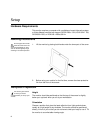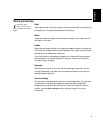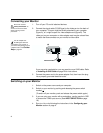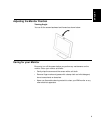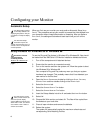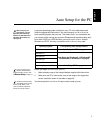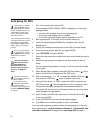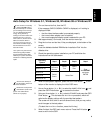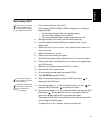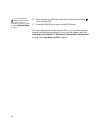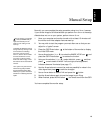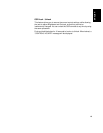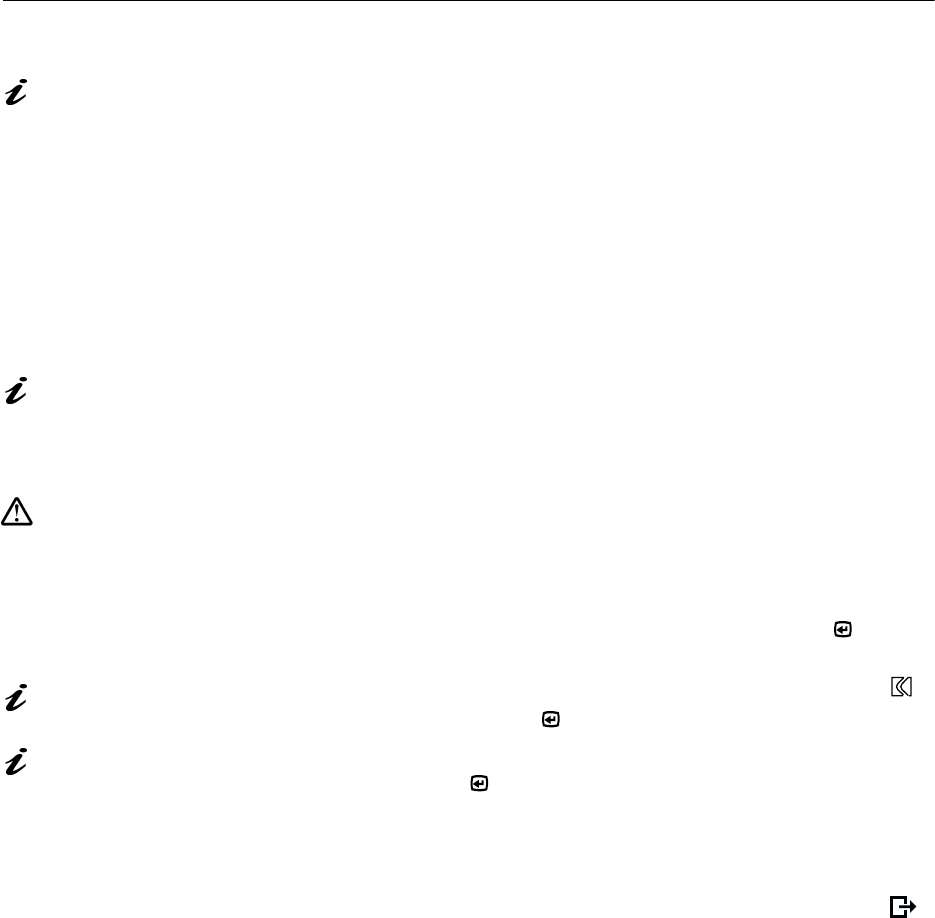
8
Auto Setup for DOS
If the monitor is in standby
mode (STANDBY ON), it
may automatically turn off while
you are waiting for it to warm up.
If this happens, switch off the
monitor and switch it on again
after a few seconds.
If your system goes into standby
mode again, reboot your system
and change the system Bios
Setup Utility to DISABLE Power
Saving. Refer to your system
manual.
1. Turn on the monitor first; then the PC.
If the message CHECK SIGNAL CABLE is displayed, or if nothing is
displayed check:
• that the video interface cable is connected properly
• the correct video adapter card is installed
• the correct supported display mode is selected for your PC.
2. Wait approximately 15 minutes, until the monitor warms up.
3. Insert the diskette labelled ‘IBM Monitor Installation Disk’ into the
diskette drive.
4. Display the command prompt screen of the DOS full-screen display.
If you are using PC-DOS/
V, change to U.S. mode by
typing
‘CHEV US’
and pressing
ENTER at the command
prompt.
5. At the command prompt, type
‘A:’
and press ENTER.
6. Type
‘TESTPATD’
and press ENTER.
7. Select from the screen the number for the color or text mode you want to
setup.
You must use DOS or
OS.2 DOS Full Screen
(not under Windows or
OS/2 DOS window, OS/2
window, or OS/2 full screen)
when you run DOS Auto
Setup.
8. Select from the screen the number for the video mode you want to
setup.
You may repeat this process for as many of the color and video modes
as you need.
9. When the dot pattern appears, press the OSD Enter button at the
bottom of the monitor to display the initial OSD menu.
The size and diversity of
the dot pattern varies with
the screen resolution.
10. Use an Arrow button (
-
or
+
) to select the IMAGE LOCK icon
then press the OSD Enter button to access the function.
If the screen flickers,
repeat the setup several
times until the flicker is
minimised, or adjust it manually
by following
Manual Setup
on page 13.
11. Using an Arrow button (
-
or
+
), select
AUTOMATIC
and press the
OSD Enter button . This activates the
A
UTO
S
ETUP
procedure, which
will optimize the display settings with the provided dot-patterns.
The screen will dim, blink on and off several times and you may notice
small changes to the test pattern.
12. When finished, the OSD main menu returns. Press the Exit button
to exit from the OSD.
13. Press the ESCAPE key to exit the test pattern program.
14. Type
‘Exit’
at the command prompt to return to Windows.
If you use other operating systems, perform the appropriate
A
UTO
S
ETUP
for
those systems, also: see
Auto Setup for Windows 3.1, Windows 95, Win-
dows 98 or Windows NT
on page 9 and
Auto Setup OS/2
on page 11.





